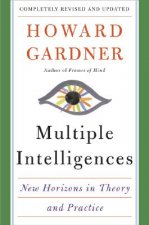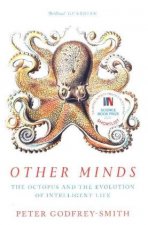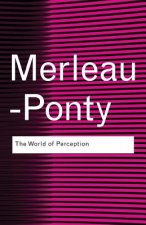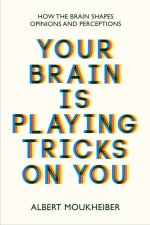
Kod: 04612267
System Theories and A Priori Aspects of Perception
Autor J. S. Jordan
This book takes as a starting point, John Dewey's article, The Reflex Arc Concept in Psychology, in which Dewey was calling for, in short, the utilisation of systems theories within psychology, theories of behaviour that capture i ... więcej
- Język:
 Angielski
Angielski - Oprawa: Twarda
- Liczba stron: 366
Wydawca: North-Holland, 1998
- Więcej informacji o książce

Zobacz książki o podobnej tematyce
Podaruj tę książkę jeszcze dziś
- Zamów książkę i wybierz "Wyślij jako prezent".
- Natychmiast wyślemy Ci bon podarunkowy, który możesz przekazać adresatowi prezentu.
- Książka zostanie wysłana do adresata, a Ty o nic nie musisz się martwić.
Więcej informacji o System Theories and A Priori Aspects of Perception
Za ten zakup dostaniesz 626 punkty
 Opis
Opis
This book takes as a starting point, John Dewey's article, The Reflex Arc Concept in Psychology, in which Dewey was calling for, in short, the utilisation of systems theories within psychology, theories of behaviour that capture its nature as a vastly-complex dynamic coordination of nested coordinations. This line of research was neglected as American psychology migrated towards behaviourism, where perception came to be thought of as being both a neural response to an external stimulus and a mediating neural stimulus leading to, or causing a muscular response. As such, perception becomes a question of how it is the perceiver creates neural representations of the physical world. Gestalt psychology, on the other hand, focused on perception itself, utilising the term Phenomenological Field; a term that elegantly nests perception and the organism within their respective, as well as relative, levels of organisation. With the development of servo-mechanisms during the second world war, systems theory began to take on momentum within psychology, and then in the 1970s William T Powers brought the notion of servo-control to perception in his book, "Behavior: The Control of Perception". Since then, scientists have come to see nature not as linear chain of contingent cause-effect relationships, but rather, as a non linear, unpredictable nesting of self referential, emergent coordinations, best described as Chaos theory. The implications for perception are astounding, while maintaining the double-aspect nature of perception espoused by the Gestalt psychologists. In short, system theories model perception within the context of a functioning organism, so that objects of experience come to be seen as scale-dependent, psychophysically-neutral, phenomenological transformations of energy structures, the dynamics of which are the result of evolution, and therefore, a priori to the individual case. This a priori, homological unity among brain perception and world is revealed through the use of systems theories and represents the thrust of this book. All the authors are applying some sort of systems theory to the psychology of perception. However, unlike Dewey we have close to a century of technology we can bring to bear upon the issue. This book should be seen as a collection of such efforts.
 Szczegóły książki
Szczegóły książki
Kategoria Książki po angielsku Society & social sciences Psychology Cognition & cognitive psychology
1076.10 zł
- Pełny tytuł: System Theories and A Priori Aspects of Perception
- Autor: J. S. Jordan
- Język:
 Angielski
Angielski - Oprawa: Twarda
- Liczba stron: 366
- EAN: 9780444826046
- ISBN: 0444826041
- ID: 04612267
- Wydawca: North-Holland
- Waga: 680 g
- Wymiary: 234 × 156 × 22 mm
- Data wydania: 21. April 1998
Ulubione w innej kategorii
-

Thinking, Fast and Slow
60.79 zł -3 % -

Thinking, Fast and Slow
77.32 zł -14 % -

How Emotions Are Made
52.02 zł -23 % -

The Paradox of Choice
56.65 zł -23 % -

Five Minds for the Future
117.85 zł -4 % -

Frames of Mind
97.59 zł -13 % -

The Art of Thinking Clearly
36.59 zł -14 % -

250 Brief, Creative & Practical Art Therapy Techniques250 Brief, Creative & Practical Art Therapy Techniques
153.75 zł -5 % -

Multiple Intelligences
96.38 zł -

Other Minds
52.42 zł -15 % -

Theory of Human Motivation
30.74 zł -1 % -

Hare Brain, Tortoise Mind
69.96 zł -10 % -

Gödel, Escher, Bach
105.86 zł -4 % -

The Memory Illusion
52.42 zł -15 % -

Where Good Ideas Come From
52.02 zł -23 % -

Present Moment in Psychotherapy and Everyday Life
217.37 zł -

Courage to Create
65.12 zł -6 % -

MINDWARE: TOOLS FOR SMART THINKING
77.63 zł -5 % -

Chaos, Creativity, and Cosmic Consciousness
78.03 zł -14 % -

Love & Will
77.63 zł -5 % -

Thinking and Reasoning: A Very Short Introduction
43.45 zł -15 % -

White Bears and Other Unwanted Thoughts
97.79 zł -

Genius Frequency
99 zł -

Mind in Motion
134.39 zł -12 % -

Willpower
52.02 zł -23 % -

Enigma of Reason
52.02 zł -23 % -

WHY WE LOVE
85.69 zł -5 % -

Geography of Thought
52.02 zł -23 % -

Getting Started with EEG Neurofeedback
217.37 zł -

Cognitive Neuroscience
300.85 zł -

Eyewitness Testimony
204.97 zł -

World of Perception
98.60 zł -4 % -

Trauma and Memory
93.45 zł -5 % -

Risk Savvy
52.42 zł -15 % -

How We Learn
70.26 zł -14 % -

Patient H.M.
52.02 zł -23 % -

Visual Thinking
75.61 zł -24 % -

Your Brain Is Playing Tricks On You
47.38 zł -23 % -

Biggest Bluff
52.42 zł -15 % -

Visible Learning and the Science of How We Learn
211.32 zł -

Face Value
174.92 zł -5 % -

Power of Mindful Learning
81.76 zł -5 % -

Wednesday Is Indigo Blue
199.62 zł -

Handbook of Color Psychology
333.12 zł -

Searching For Memory
144.67 zł -

Natural History of Human Thinking
114.12 zł -

Medieval Craft of Memory
162.32 zł -

Oxford Handbook of Suicide and Self-Injury
276.25 zł -

Noise
124.21 zł
zadowolonych klientów
Od roku 2008 obsłużyliśmy wielu miłośników książek, ale dla nas każdy był tym wyjątkowym.
Copyright! ©2008-24 libristo.pl Wszelkie prawa zastrzeżonePrywatnieCookies






 21 milionów książek
21 milionów książek Dostawa 10.99 zł
Dostawa 10.99 zł (32) 444 93 66 (8-15.30h)
(32) 444 93 66 (8-15.30h)